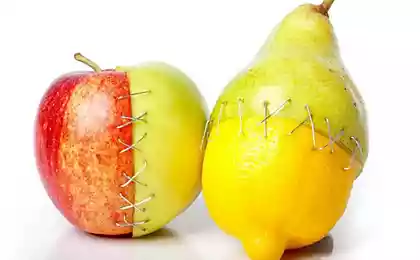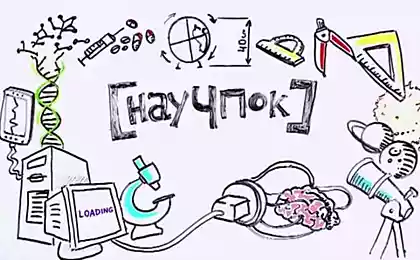657
Robert Waldinger What makes a good life? The lessons of the longest studies on happiness
What makes us healthy and happy throughout our life? If you think that this fame and money, you are not alone in this.
However, according to the psychiatrist Robert Waldinger, you are mistaken.
Forty three million two hundred thirty five thousand three hundred forty five
As leader of the 75-year research project on adult development, Waldinger has unprecedented access to the secrets of true happiness and satisfaction.
In this talk, he shares three important lessons learned from this study, as well as some practical and as old as the world and wise tips on how to secure a full and long life.
https://embed-ssl.ted.com/talks/robert_waldinger_what_makes_a_good_life_lessons_from_the_longest_study_on_happiness.html
SUBSCRIBE to OUR youtube channel that allows you to watch online, download from YouTube free video about the recovery, the rejuvenation of man. Love for others and ourselves, as the feeling of high vibrations — an important factor
We are constantly told that we need to bet to work, diligence and achieve more.We have the impression that this is what we should strive to live better. The full picture of life, people accept the decisions and consequences of those decisions - this picture of us almost inaccessible. Most of our knowledge of human life based on what people remember from your past, as you know, when you look into the past we do not have 100% vision. We forget much of what happens to us in life, and memories are sometimes distorted beyond recognition.
1:35 But what if we could see the life fully as it develops in time? What if we would have been able to follow Many people from adolescence to old age, the Condition itself and to SEE what really makes them healthy and happy ?
1:54 That's what we did. Harvard study on adult DEVELOPMENT can be Considered the longest study of adult life. For 75 years we have been year after year watching the life of 724 men, asked them questions about work, personal life, health, and all this time asked them, not knowing what will happen in their lives.
2:24 Such studies are extremely rare. Almost no project of this Kind does NOT hold up to Ten years, or leaving too many participants, either because of termination of funding, or because of new interests among employees, or because their death in the absence of followers . But by happy coincidence and thanks to the perseverance of several generations of researchers, this project survived. About 60 of our initial 724 participants are still alive and Involved in the project, most of them over 90. and we start the Top All the Research work of more than 2,000 children of these people . I'm the fourth head of the project.
3:14 Since 1938, we studied two groups of men. At the beginning of the project, the participants of
The first group were second-year students at Harvard College. They all graduated from College during the Second world war , and most of them went to war. The second group studied was a group of boys from the poorest parts of Boston that chose to study it : their identity for the most disadvantaged and families in Boston in the 30-ies. Most of them lived in a rented apartment buildings without running water .
3:53 At the beginning of the project, all young men have passed the interview to Answer . All underwent medical examinations. We come to your house and talked to their parents . Then these boys become adults, each of them with his fate. They became factory workers, lawyers, builders and doctors, and one even became a President of the United States. One of them became an alcoholic. Some developed schizophrenia. Some climbed the ladder of social from the bottom to the top, and the other travelled in the opposite direction.
4:34 the founders of the project, even in its most intimate dreams Could NOT imagine that I stand here today, 75 years later, telling that the project is still ongoing.Every two years : our patient and dedicated staff, call Our Members and ask them to send another questionnaire with questions about their life.
4:59 Many of those living in downtown Boston, asked: "Why do you continue to study me? In my life there is nothing interesting ". Harvard alumni don't ask such questions.
5:10 (Laughter)
5:19 in order to clarify the picture of their life, we not only send the survey to them. We converse with them in their living rooms. We get their medical history from their doctors. We take their blood, we scan their brains we're talking with their children. We video recorded their conversations with their wives about their deepest problems . And when ten years ago we finally got about the product of the Wives asked about their willingness to participate in the project, many of them answered us: "it's about time".
5:49(Laughter)
5:50 so, what have we learned? What are the lessons learned from tens of thousands of pages of Information accumulated about their life? So, these lessons. NOT about wealth or fame and NOT about hard work AFTER 75 years of research we became pretty clear that the happier and healthier we make a good relationship. Point.
6:22. We learned three Main lessons about the relationship First, the relationship with the people we very helpful . But loneliness kills One : it Turns out that people who have a strong connection with family, friends, community, happier, healthier physically, and live longer than people without the society of other people. A state of loneliness, as it turned out, poison.people isolated from others more than they would like, feel less happy, their health is deteriorating earlier, the functions of the brain such people have denied before, and life is shorter than people neodynamic. and the sad thing is that when you asked, at least one in five Americans will tell you that he is lonely.
7:18 And we know that we can be lonely in a crowd you can be lonely in a marriage, so the second lesson we learned was that it is NOT the number of friends or do you have a constant pair, and the quality of those relationships with loved ones. As it turned out, life in a state of conflict is extremely harmful for our health . Family conflict, for example where there is a lack of love and affection, very detrimental effect on our health, it is perhaps even worse than divorce. But life in a good spiritual atmosphere is essential for protection.
7:56 When our participants was well over 80, we wanted to go back to the middle of their life and see whether it was possible to predict who will be a happy, Healthy 80-year-old man, and who is not. After gathering all the information we have when they were 50, it was NOT the level what is cholesterol age served as an indicator of what they will be in old age. This turned out to be how well was their relationship. The people most satisfied with their relations in 50 years, were the most healthy at 80. Good, warm relationships are for us a kind of buffer protecting us from the blows of fate from becoming the elderly. The happiest of our couples, when it was already over 80, said that even in moments of great physical pain Condition: they have the feeling of happiness. And people with neselevska relationship of exacerbations days in physical pain As suffered even more pain emotional.
9:03 And the third we learned a lesson about relationships and health - is that a good relationship not only protect our body . They protect our brain : it Turns out, reliable and strong attachment to another person, when you are over 80, protects you, and people who are in relationships where they really can rely on each other in hard times , longer retain a good memory. And people whose relationships do NOT allow to truly rely on each other, the memory problems occur much earlier. A good relationship does not mean full bezoblachnoe. Some of our 80-year old couples altercation Can last Possible day and night, but yet they feel they can count on the support of another, when the going gets tough, these arguments do not render much damage to their memory.
10:00 the Truth about what is good, close relationships contribute to our well-being, old as the world. Why is it so difficult to digest and so easy to embrace ? Yes, because we -. The people We prefer short-term Solutions, we would get something from what our life will be better and stay that way . And relationship there are no guarantees, they are complicated, confusing and require a sustained effort, the impact of family and friends, there's no glitz and glamour. and there is no end. It is the job of a lifetime. In our 75-year study, the happiest participants in retirement there were people who were actively doing from co-workers playmates. In the same way as the millennial generation in a recent survey, many of our men, entering adulthood, sincerely believed that wealth, fame and great achievements . this is what they need for a full and happy life But again and again for over 75 years, our research has confirmed that the better the people live, that have relied on family relationships, with friends, with like-minded people.
11:20A what do you think? Let's say you're 25, or 40, or 60. What does it mean to invest in the relationship?
11:30Возможности practically unlimited. It can be a simple replacement of time of screen time with people , reviving stale relationships of some new idea together, for example, a long walk or a date night or call That relative that you haven't talked, because these too are familiar to us all strife threatened terrible retribution to Those who harbors anger on others.
12:03Я would like to end with a quote from Mark TWAIN. More than a century ago, looking back on his life, he wrote: "there is No time — so short life . Squabbling, the apology, the bile, and calling to otvechaete only time to love, and that is to say, there is only a moment."
12:33Хорошая life is built on good relationships.
12:38Спасибо.
How to learn to understand life's lessons
A journey to lake Baikal. Part 6
Put LIKES and share with your FRIENDS!
www.youtube.com/channel/UCXd71u0w04qcwk32c8kY2BA/videos
Subscribe — www.facebook.com//
P. S. And remember, only by changing their consumption — together we change the world! ©
Source: www.ted.com/talks/robert_waldinger_what_makes_a_good_life_lessons_from_the_longest_study_on_happiness?language=ru
However, according to the psychiatrist Robert Waldinger, you are mistaken.
Forty three million two hundred thirty five thousand three hundred forty five
As leader of the 75-year research project on adult development, Waldinger has unprecedented access to the secrets of true happiness and satisfaction.
In this talk, he shares three important lessons learned from this study, as well as some practical and as old as the world and wise tips on how to secure a full and long life.
https://embed-ssl.ted.com/talks/robert_waldinger_what_makes_a_good_life_lessons_from_the_longest_study_on_happiness.html
SUBSCRIBE to OUR youtube channel that allows you to watch online, download from YouTube free video about the recovery, the rejuvenation of man. Love for others and ourselves, as the feeling of high vibrations — an important factor
We are constantly told that we need to bet to work, diligence and achieve more.We have the impression that this is what we should strive to live better. The full picture of life, people accept the decisions and consequences of those decisions - this picture of us almost inaccessible. Most of our knowledge of human life based on what people remember from your past, as you know, when you look into the past we do not have 100% vision. We forget much of what happens to us in life, and memories are sometimes distorted beyond recognition.
1:35 But what if we could see the life fully as it develops in time? What if we would have been able to follow Many people from adolescence to old age, the Condition itself and to SEE what really makes them healthy and happy ?
1:54 That's what we did. Harvard study on adult DEVELOPMENT can be Considered the longest study of adult life. For 75 years we have been year after year watching the life of 724 men, asked them questions about work, personal life, health, and all this time asked them, not knowing what will happen in their lives.
2:24 Such studies are extremely rare. Almost no project of this Kind does NOT hold up to Ten years, or leaving too many participants, either because of termination of funding, or because of new interests among employees, or because their death in the absence of followers . But by happy coincidence and thanks to the perseverance of several generations of researchers, this project survived. About 60 of our initial 724 participants are still alive and Involved in the project, most of them over 90. and we start the Top All the Research work of more than 2,000 children of these people . I'm the fourth head of the project.
3:14 Since 1938, we studied two groups of men. At the beginning of the project, the participants of
The first group were second-year students at Harvard College. They all graduated from College during the Second world war , and most of them went to war. The second group studied was a group of boys from the poorest parts of Boston that chose to study it : their identity for the most disadvantaged and families in Boston in the 30-ies. Most of them lived in a rented apartment buildings without running water .
3:53 At the beginning of the project, all young men have passed the interview to Answer . All underwent medical examinations. We come to your house and talked to their parents . Then these boys become adults, each of them with his fate. They became factory workers, lawyers, builders and doctors, and one even became a President of the United States. One of them became an alcoholic. Some developed schizophrenia. Some climbed the ladder of social from the bottom to the top, and the other travelled in the opposite direction.
4:34 the founders of the project, even in its most intimate dreams Could NOT imagine that I stand here today, 75 years later, telling that the project is still ongoing.Every two years : our patient and dedicated staff, call Our Members and ask them to send another questionnaire with questions about their life.
4:59 Many of those living in downtown Boston, asked: "Why do you continue to study me? In my life there is nothing interesting ". Harvard alumni don't ask such questions.
5:10 (Laughter)
5:19 in order to clarify the picture of their life, we not only send the survey to them. We converse with them in their living rooms. We get their medical history from their doctors. We take their blood, we scan their brains we're talking with their children. We video recorded their conversations with their wives about their deepest problems . And when ten years ago we finally got about the product of the Wives asked about their willingness to participate in the project, many of them answered us: "it's about time".
5:49(Laughter)
5:50 so, what have we learned? What are the lessons learned from tens of thousands of pages of Information accumulated about their life? So, these lessons. NOT about wealth or fame and NOT about hard work AFTER 75 years of research we became pretty clear that the happier and healthier we make a good relationship. Point.
6:22. We learned three Main lessons about the relationship First, the relationship with the people we very helpful . But loneliness kills One : it Turns out that people who have a strong connection with family, friends, community, happier, healthier physically, and live longer than people without the society of other people. A state of loneliness, as it turned out, poison.people isolated from others more than they would like, feel less happy, their health is deteriorating earlier, the functions of the brain such people have denied before, and life is shorter than people neodynamic. and the sad thing is that when you asked, at least one in five Americans will tell you that he is lonely.
7:18 And we know that we can be lonely in a crowd you can be lonely in a marriage, so the second lesson we learned was that it is NOT the number of friends or do you have a constant pair, and the quality of those relationships with loved ones. As it turned out, life in a state of conflict is extremely harmful for our health . Family conflict, for example where there is a lack of love and affection, very detrimental effect on our health, it is perhaps even worse than divorce. But life in a good spiritual atmosphere is essential for protection.
7:56 When our participants was well over 80, we wanted to go back to the middle of their life and see whether it was possible to predict who will be a happy, Healthy 80-year-old man, and who is not. After gathering all the information we have when they were 50, it was NOT the level what is cholesterol age served as an indicator of what they will be in old age. This turned out to be how well was their relationship. The people most satisfied with their relations in 50 years, were the most healthy at 80. Good, warm relationships are for us a kind of buffer protecting us from the blows of fate from becoming the elderly. The happiest of our couples, when it was already over 80, said that even in moments of great physical pain Condition: they have the feeling of happiness. And people with neselevska relationship of exacerbations days in physical pain As suffered even more pain emotional.
9:03 And the third we learned a lesson about relationships and health - is that a good relationship not only protect our body . They protect our brain : it Turns out, reliable and strong attachment to another person, when you are over 80, protects you, and people who are in relationships where they really can rely on each other in hard times , longer retain a good memory. And people whose relationships do NOT allow to truly rely on each other, the memory problems occur much earlier. A good relationship does not mean full bezoblachnoe. Some of our 80-year old couples altercation Can last Possible day and night, but yet they feel they can count on the support of another, when the going gets tough, these arguments do not render much damage to their memory.
10:00 the Truth about what is good, close relationships contribute to our well-being, old as the world. Why is it so difficult to digest and so easy to embrace ? Yes, because we -. The people We prefer short-term Solutions, we would get something from what our life will be better and stay that way . And relationship there are no guarantees, they are complicated, confusing and require a sustained effort, the impact of family and friends, there's no glitz and glamour. and there is no end. It is the job of a lifetime. In our 75-year study, the happiest participants in retirement there were people who were actively doing from co-workers playmates. In the same way as the millennial generation in a recent survey, many of our men, entering adulthood, sincerely believed that wealth, fame and great achievements . this is what they need for a full and happy life But again and again for over 75 years, our research has confirmed that the better the people live, that have relied on family relationships, with friends, with like-minded people.
11:20A what do you think? Let's say you're 25, or 40, or 60. What does it mean to invest in the relationship?
11:30Возможности practically unlimited. It can be a simple replacement of time of screen time with people , reviving stale relationships of some new idea together, for example, a long walk or a date night or call That relative that you haven't talked, because these too are familiar to us all strife threatened terrible retribution to Those who harbors anger on others.
12:03Я would like to end with a quote from Mark TWAIN. More than a century ago, looking back on his life, he wrote: "there is No time — so short life . Squabbling, the apology, the bile, and calling to otvechaete only time to love, and that is to say, there is only a moment."
12:33Хорошая life is built on good relationships.
12:38Спасибо.
How to learn to understand life's lessons
A journey to lake Baikal. Part 6
Put LIKES and share with your FRIENDS!
www.youtube.com/channel/UCXd71u0w04qcwk32c8kY2BA/videos
Subscribe — www.facebook.com//
P. S. And remember, only by changing their consumption — together we change the world! ©
Source: www.ted.com/talks/robert_waldinger_what_makes_a_good_life_lessons_from_the_longest_study_on_happiness?language=ru























